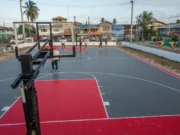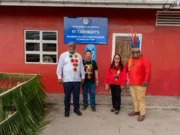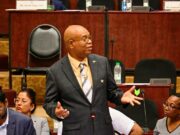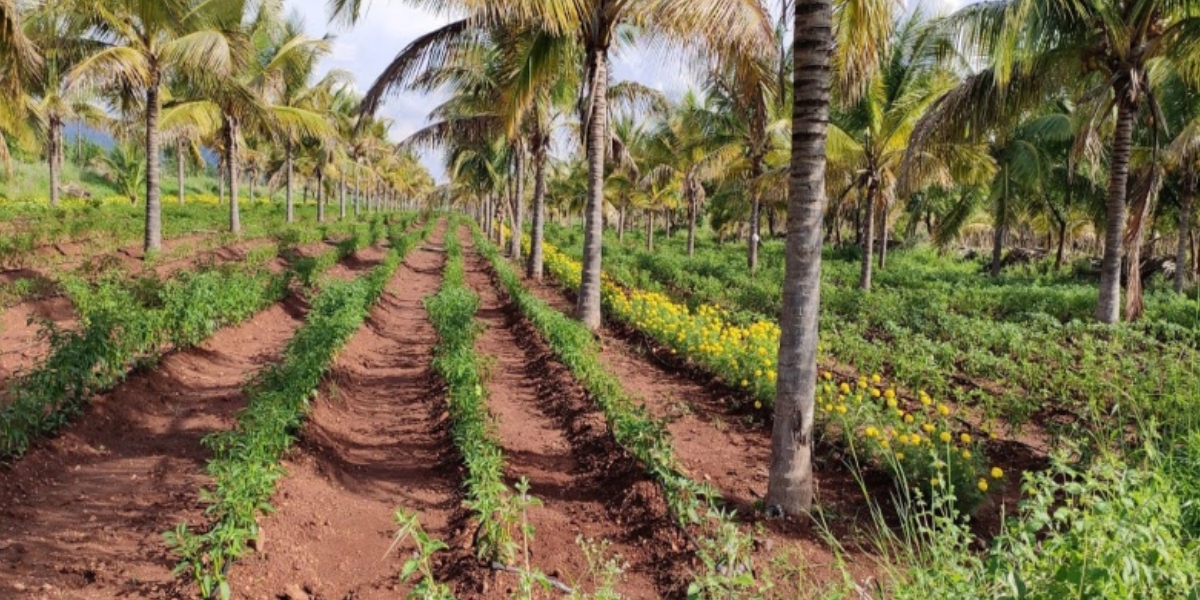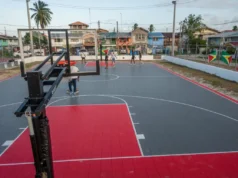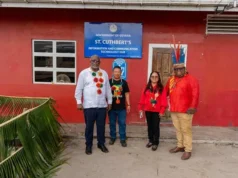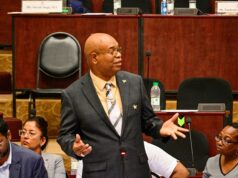President, Dr Mohamed Irfaan Ali announced that some 20,000 acres of new farmland on the Essequibo coast, Region Two will become available for small-scale farmers to address the long-standing issue of high rental costs.
According to the head of state, a significant number of small-scale farmers, especially those cultivating 30 acres or less, are renting land, often from absentee landowners or larger farmers.

This was highlighted as one of the most pressing issues for farmers on the Essequibo coast.
To address this, “we are going to invest, in the coming months, to open up at least 20,000 acres of land in three different clusters here in Essequibo.”
He made the announcement during an engagement with farmers and fisherfolk at the Anna Regina Multilateral School on Saturday.
Beyond just access, the president said plans are afoot to also invest in capital development for these lands, including providing seed paddy, building drainage and irrigation infrastructure, and ensuring that the land is farm-ready.
The region will be organised into three agricultural clusters, with each cluster being equipped with essential machinery, such as backhoes, tractors with ploughs, and combines.
“And, you [will] manage those resources [and] you can charge each other, among yourselves, for the maintenance of the equipment,” the president said.
Additionally, to boost income and add value to existing rice cultivation, President Ali said resources will be provided to develop one acre out of every ten for high-value, high-yield crops.

With unpredictable weather patterns making it difficult for farmers to dry their produce, the president announced that two modern drying and storage facilities will be constructed in the region. Engineers are expected to complete the designs within two weeks.
In the fishing industry, plans are on the cards to diversify income for fishers and their families, by promoting swamp shrimp and prawns farming as part of a large aquaculture initiative.
Additionally, the back dam access roads will be converted into durable, hard-surfaced routes using crush-run materials. These roads are vital for improving access to farms, transporting produce, and reducing spoilage and operating costs.
These investments, he noted, are part of the government’s vision to transform Region Two into a hub for both food production and tourism, with agritourism as a central theme.
The president noted, “the government will put three coal storage facilities to support our cash crop farmers and to support our fisher folk here in the region.”
Investments in three cold storage facilities will help stabilise prices, support perishable crop farmers and fisherfolk, and create new agribusiness opportunities.
Furthermore, to improve access to agricultural support, a new control centre in Georgetown is being established to collect and analyse data, track weather and pests, and provide timely, proactive advice to farmers not just in Guyana, but across the Caribbean.

In the next two years, the president said, Guyana will operationalise its own fertiliser plant, reducing its dependency on unpredictable global markets. It will also lower fertiliser costs and enable the production of blends to suit regional soil types.
The president emphasised a collaborative approach to agricultural development, making it clear that the government intends to craft policies and measures that are deeply informed by the lived experiences of farmers.
In closing, he urged citizens to consider who they can trust to implement these initiatives in the coming years, pledging the government’s continuous support for citizens, including those in the agriculture sector.
Joining him was the Minister of Agriculture, Zulfikar Mustapha, Director General of the Ministry of Agriculture, Madanlall Ramraj and Regional Chair, Vilma Da Silva and representatives from the various agencies.

